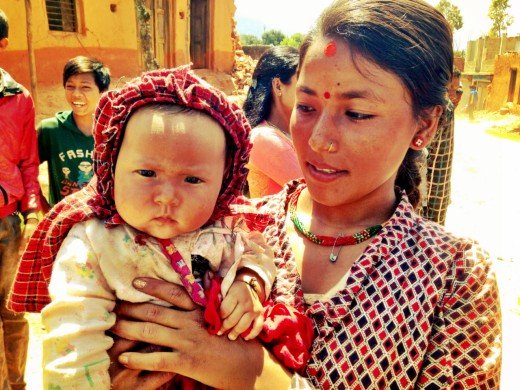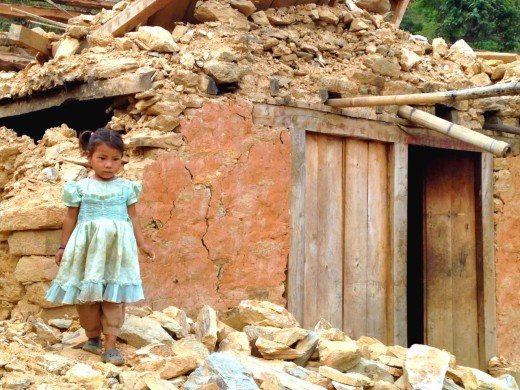The truth is I didn’t know what time it was.
Only weeks after the terrible earthquake that devastated Nepal, I was with a team of engineers working with families from the Sindhupalchock district, a rural area in the centre of Nepal where barely a house was left standing.
As a UNDP regional crisis adviser, I was focused on the job at hand - but fate had other plans.
Another quake hit.
I didn't know what was happening. My legs started shaking uncontrollably, and suddenly I fell to the ground. Then I heard the shouts. Many of the families we were there to help panicked. Men, women, children - everyone was screaming. Some fainted, while even more homes collapsed around us.

In Nepal, we are running against the clock, facing a large number of challenges that make reconstruction a complex task. Over 300,000 homes were damaged. They pose a huge risk, as it’s only a matter of time until they too collapse. In addition, winter is approaching with its torrential monsoon rains. It is absolutely urgent that we help these communities have safer and warmer homes in the coming weeks.
People who already had very little before the earthquakes, have now lost everything. We are working in communities where the destruction is almost total; 98 per cent of the homes have collapsed. Families cannot enter or retrieve their documents, property deeds, tools or personal belongings. It is an incredible challenge.
While working every day with the people of Nepal, it's impossible not to recall our work in Haiti, where I led the Debris Management initiative for UNDP, as well as efforts made with communities for their recovery after the earthquake that struck Port-au-Prince.

The case in Nepal is similar and yet very different. Both countries have been hit by the most devastating earthquakes of the century. In terms of debris, the number of damaged houses in Nepal is at least three times greater than in Haiti. In Nepal, recent earthquakes have heavily struck the mountainous and rural áreas. The earthquake in Haiti almost completely destroyed the capital, killing more than 250,000 people, including 30 per cent of civil servants, greatly affecting the Government's ability to respond to a crisis of this magnitude. The Haiti earthquake also heavily hit the United Nations. The building of the UN Mission in the country collapsed; we lost more than 100 colleagues, a record number of deaths of officials in a single disaster.
How can we help?
Many people from around the world ask me how they can help Nepal in this difficult time. There are various ways. I think everyone should support organizations they feel close to. There are many organizations that are doing a great job. UNDP, for example, is raising funds through its website. This support we get will be dedicated to the safe demolition and restoration of houses damaged by the earthquakes in isolated rural áreas, and to providing the affected families with the means to rebuild their own lives and livelihoods. Certainly, a small contribution can change the lives of many people here.
We from the United Nations are continuing our work, together with the national and local authorities and the affected communities, to support recovery in spite of all the challenges
We are racing against the clock, against the arrival of torrential rains and new landslides, against the upcoming winter, and against the risk of further earthquakes. We are racing so that the people of Nepal will soon be able to dream of a better future.
Article contributed by Ugo Blanco, Regional Advisor for Crisis Prevention and Recovery, Regional Bureau for Latin America and the Caribbean, UNDP.